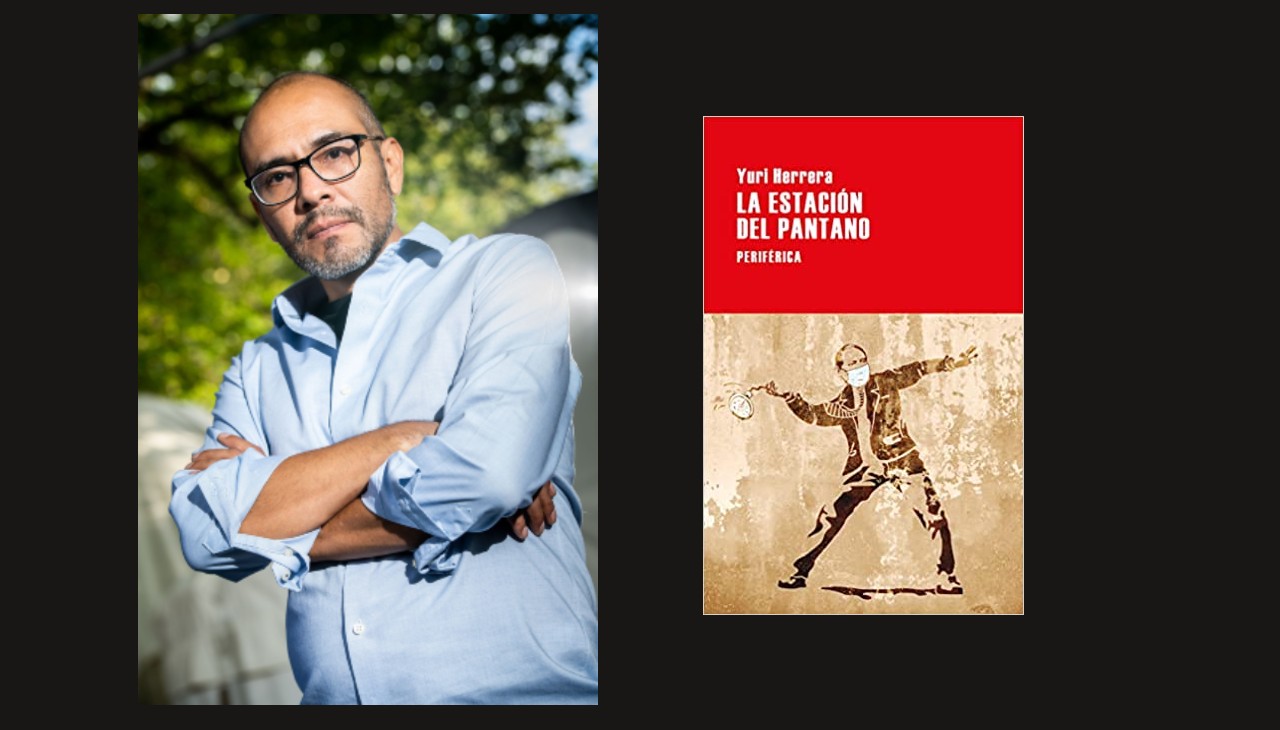
A trip to the New Orleans, where Benito Juárez was exiled
In 'La estación del pantano,' Yuri Herrera imagines the life of the future Mexican indigenous president during his first exile in New Orleans
What happened during the year and a half that Benito Juárez, who would end up being Mexico's first Indigenous president, and lived in exile in New Orleans?
It is from that gap in Juarez's autobiography where the narrative of La estación del pantano, the latest novel by Mexican writer Yuri Herrera, begins.
In 1853, accompanied by a small group of political exiles, Juárez disembarks in New Orleans, a stinking city that, located on the banks of a swamp, absorbs them like a sponge. There they surrender to the mud, the jasmine flowers, the music, the strangeness of the language and the unbearable summer, but, above all, they come face to face with the stark reality of the trade in human beings, a market that never stops. They will discover that New Orleans is a beehive of heterogeneous identities where women are sold on the streets and where capitalism shows its primitive impulse.
Through a sweeping and transgressive writing, Herrera, author of Kingdom Cons, winner of the "Premio Binacional de Novela" in 2003 and translated into more than 10 languages, dives this time into history to offer us a novel with touches of fable and at the same time firmly grounded in archival research, managing to find a secret key to a present in the open.
As Herrera himself writes at the beginning of the novel, there is no news of Juarez in this first eighteen-month stay in Louisiana.
RELATED CONTENT
"Outside of the same two or three vague anecdotes mentioned in the biographies, no one knows exactly what happened."
Among the aspects addressed in the novel is a portrait of 19th century New Orleans, a violent and swampy city, still marked by slavery, which would later lead to the American Civil War.
Herrera knows the city of New Orleans pretty well. He is currently a professor at Tulane University, located there.
Before coming to New Orleans, he first studied political science in Mexico, received his M.A. in Creative Writing from the University of Texas at El Paso (UTEP) and his Ph.D. in Hispanic Language and Literature from the University of California, Berkeley. He has taught at the Universidad Iberoamericana in Mexico City and the University of North Carolina at Charlotte.
Herrera's novelistic work has focused on the themes of violence, drug trafficking, migration, and power relations. On the other hand, notes critic Gisela Orozco, in the magazine Vívelo Hoy, it is possible to notice an emphasis on setting, as his stories tend to take place in spaces that approach the fantastic. In this regard, Herrera has highlighted the importance of questioning how we perceive the world: "I believe that in the way we reconstruct the world we are not only developing our own voice, but we are making a certain type of criticism and a certain type of interpretation of what is happening," he told Vívelo Hoy.
His first novel published in English was Señales que precederán al fin del mundo (Signs Preceding the End of the World), in 2015, and was included in The Guardian and NBC News's Ten Great Latino Books list of the year. Other novels translated into English are La transmigración de los cuerpos (The Transmigration of Bodies) and the aforementioned Trabajos del Reino (Kingdom Cons), in which, through the eyes of a corrido composer, he unfolds a panorama of the palatial life of a drug cartel.












LEAVE A COMMENT: